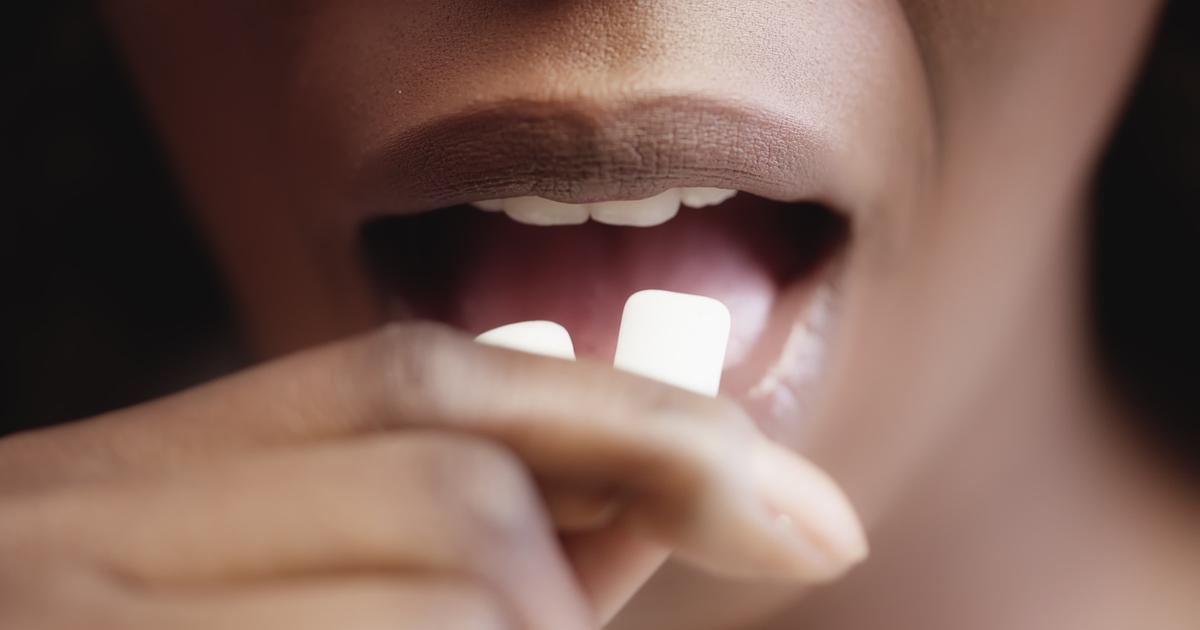THE RIGHT QUESTION.- They are chewed to cool the breath or to overcome the aches. But chewing several times a day has consequences on digestive and oral health? The introduction of a dental surgeon and a gastroenterologist.
Some choose with mint, others with strawberries or with the mention of freshness. Chewing gum is appreciated for its taste, sometimes for its anti-stress effect and especially for the freshness of the air it provides. But is this treatment safe for your health? Can we consume it all day?
Also readWhy does the belly get bigger with age?
Dental hygiene and chewing
“According to the French Union for Oral Health (UFSBD), you can chew up to 5 pieces of sugar-free chewing gum per day,” immediately points out Professor Élodie Terrer, dental technician and researcher in microbiology. Contrary to what you might think, chewing gum can have a positive effect on dental hygiene, especially when you don’t have the opportunity to brush your teeth after eating. “Chewing stimulates the production of saliva in the mouth and saliva has a self-cleansing role,” informs the dental surgeon. Through its neutral PH, it limits acid attacks from foods on tooth enamel.
” data-script=”https://static.lefigaro.fr/widget-video/short-ttl/video/index.js” >
However, this information only applies to sugar-free chewing gum. “The sugary version is a disaster for the teeth and the oral cavity, just like sweets,” warns Professor Élodie Terrer. And if you don’t brush your teeth after eating such jams, this encourages the appearance of cavities.
Also readShould you brush your teeth before or after breakfast?
But is it good to chew so much? Yes and no, answers the dental surgeon. “Chewing gum relaxes the chewing muscles, but you should not keep it in your mouth for more than 20 minutes,” he explains. Beyond this, we overstimulate the jaw and risk a stiff effect. Ultimately, this can create problems with the temporomandibular joint (the joint between the lower jaw and the upper jaw). Without forgetting the possible appearance of migraines, related to the tension in the jaw bone, directly connected to the skull, he adds.
The sweet version is a disaster for the teeth and the oral cavity, just like sweets
Élodie Terrer, dental surgery
Chewing gum is contraindicated for people who wear removable dentures, who suffer from temporomandibular joint disorders, or who complain of a cracking jaw.
Swelling
When it comes to our intestinal health, the possibilities are more limited. Chewing gum should be avoided or even banned. The gastroenterologist, Julien Scanzi explains. “When we chew, we ingest the components of the chewing gum, but it contains absolutely nothing good for our health. Sugars, sweeteners, flavors, colorings… These are a bunch of chemical compounds that have nothing nutritious, and that , for some, disrupt the endocrine system and the intestinal microbiota.
Certain compounds in the treatment will destroy the bacteria present in the intestine, thus removing the microbiota.
Dr. Julien Scanzi, gastroenterologist
And for good reason, the sugars and sweeteners present in chewing gum “are part of the FODMAPs, poorly digested sugars, which ferment in the intestine and can lead to digestive disorders, gas and bloating, informs the doctor. And until that we chew with the mouth open, the air ingested increases this swelling”. Having the habit of finishing a meal with this touch of freshness, we also risk long-term digestive problems. “Certain compounds in the treatment will destroy the bacteria present in the intestine, thus eliminating the microbiota,” advises the gastroenterologist. In the long run, the imbalance that this implies can promote poorer health.”
If you still want to consume it, it is best to opt for the version without sugar, and to use it as often as possible. The gastroenterologist then advises the candy in two, to reduce the amount chewed and only keep it in the mouth for a few minutes.

